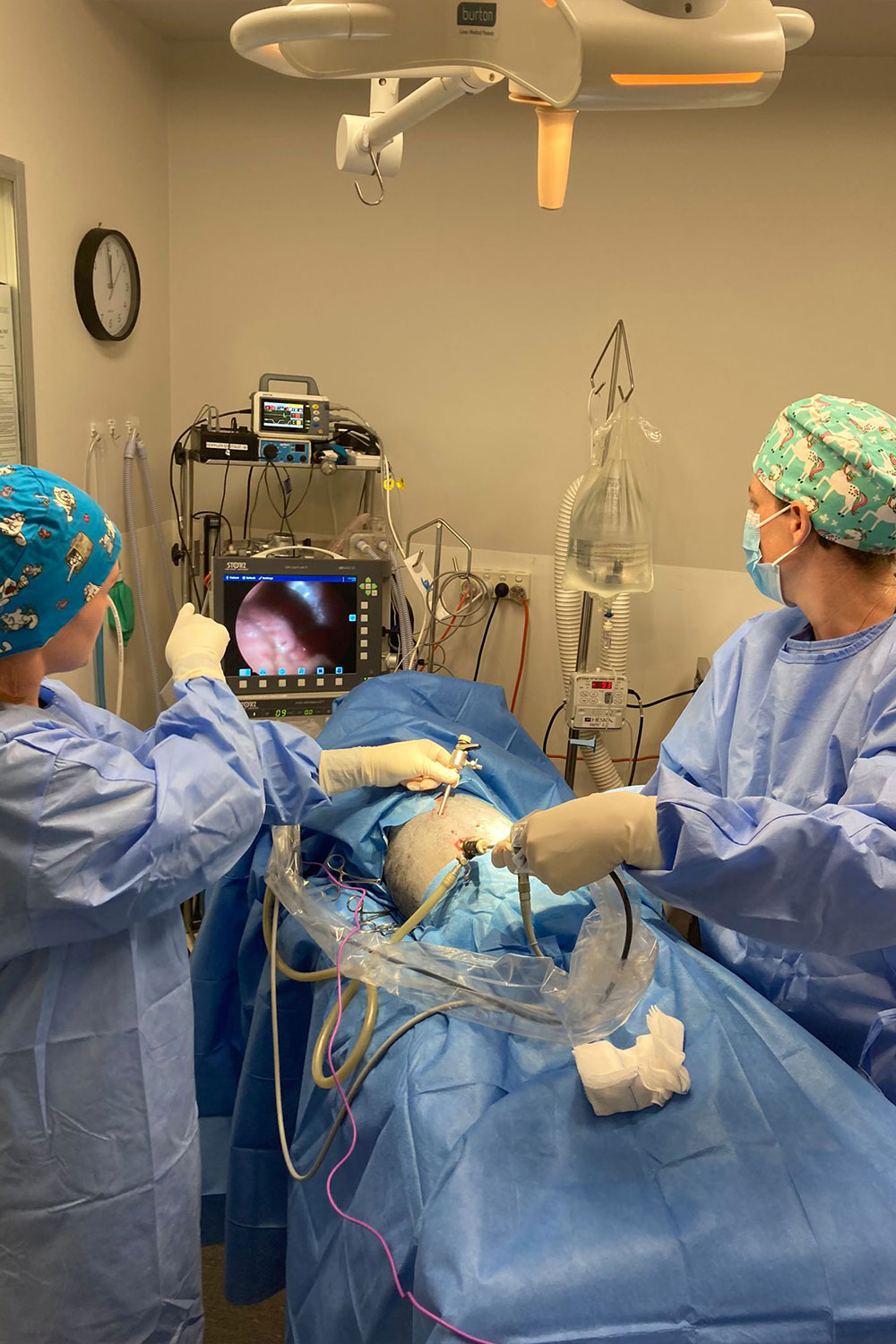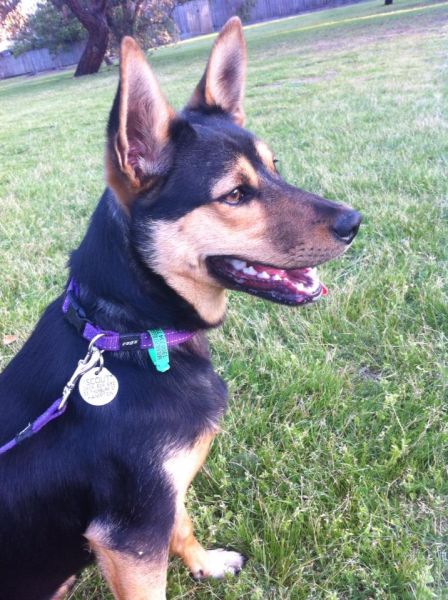Surgical Services >
General and Advanced Surgery
Surgery is conducted Monday to Friday in our dedicated sterile operating theatre. We not only have advanced equipment to monitor your pet whilst anaesthetised (Heart & respiratory rate, oxygen levels, blood pressure, ECG & body temperature) but have a dedicated nurse monitoring your pet’s progress during the anaesthetic till recovery.
General Surgery include:
- Desexing – Speys and Castrations – dogs, cats, rabbits and guinea pigs
- Caesarian operations
- Lump (Cancer) Removals
- Biopsy
- Laceration repair
- Abscess surgery
- Ear cleaning
Laparascopic Surgery:
- Spey – removal of ovaries
- Cryptorchid castration – where one or both testicles fail to leave the abdomen
- Minimally invasive abdominal surgery for abdominal exploration, including liver biopsy, intestinal biopsies
Minimally invasive surgery has many benefits for both cats and dogs, with a much smaller opening into the abdomen, your pet will recover faster and this means for dogs – we do not restrict activity for as long as conventional abdominal surgery.
Advanced Surgery includes:
- Fracture repair
- Knee reconstruction (Cruciate repair)
- Patella stabilisation
- Cancer surgery
- Chest surgery
- Abdominal surgery – foreign body removal, bladder stone removal (can be performed keyhole)
- Hernia repair
Surgery Requirements:
- No food after midnight the night prior to surgery
- Normal access to water
- Admission is by appointment with the Surgery Vet or Nurse. Please allow 10 minutes.
- Discharge is by appointment with the Vet. Please allow 10 -20 minutes.
- Revisits are by appointment, generally 3 days and 10 days post surgery to evaluate your pet’s progress.
- To keep your pet safe and healthy whilst under General Anaesthesia all dogs and cats receive Intravenous Fluid Therapy.
- We recommend Pre Anaesthetic Blood testing prior to anaesthesia. For more details why this is good for your pet, see Scout’s story below.
Scout’s Story – The importance of Pre Anaesthetic blood tests!
Meet Scout – a gorgeous playful Kelpie pup belonging to Eliza.
Scout graduated from our Puppy Preschool in 2013 with honours! She was very attentive & very smart, loved the other pups and loved Anna.
When it was time for her to be speyed, Eliza took the option to run a blood test prior to the anaesthetic, and she was so glad that she did.
The blood test revealed that Scout had Kidney (Renal) failure – her kidneys were struggling to deal with their role of eliminating waste products from her body.
Everyone was shocked as outwardly Scout seemed fine – something we hear commonly.
Though Scout does have Kidney failure – she is one lucky dog. Lucky that her problem was detected early – before the onset of clinical signs. It is during this pre-clinical stage that if we can detect a problem that we have the best chance of treatment. This is why we strongly recommend blood testing prior to anaesthetics so we can detect any problems early and keep your pet as healthy as we can.
The benefits of Pre Anaesthetic Blood testing:
1. Early detection of disease
2. Establish a base line (reference) for future blood tests
So, now back to Scout…. We did not proceed with the Anaesthetic and Spey – anaesthetics can result in reduced blood flow to the kidneys and a worsening of her condition. Rather, Scout underwent some further tests to establish the severity of her renal failure.
She is now on a special prescription diet that supports kidney health and regular health checks – examination, blood and urine tests and blood pressure monitoring, to ensure that the progression of her kidney disease is slowed down.
Whether it be via their website, over the phone, or in person – the team at Middle Brighton Vets go above and beyond in every way! From the moment you make contact, there is genuine care and understanding and a shared goal of getting the best treatment and experience for your pet. Every team member is kind and professional and the consults never feel rushed – they take the appropriate time and answer all your questions. We couldn’t recommend them more highly.
Scout’s Story – The importance of Pre Anaesthetic blood tests!
Meet Scout – a gorgeous playful Kelpie pup belonging to Eliza.
Scout graduated from our Puppy Preschool in 2013 with honours! She was very attentive & very smart, loved the other pups and loved Anna.
When it was time for her to be speyed, Eliza took the option to run a blood test prior to the anaesthetic, and she was so glad that she did.
The blood test revealed that Scout had Kidney (Renal) failure – her kidneys were struggling to deal with their role of eliminating waste products from her body.
Everyone was shocked as outwardly Scout seemed fine – something we hear commonly.
Though Scout does have Kidney failure – she is one lucky dog. Lucky that her problem was detected early – before the onset of clinical signs. It is during this pre-clinical stage that if we can detect a problem that we have the best chance of treatment. This is why we strongly recommend blood testing prior to anaesthetics so we can detect any problems early and keep your pet as healthy as we can.
The benefits of Pre Anaesthetic Blood testing:
1. Early detection of disease
2. Establish a base line (reference) for future blood tests
So, now back to Scout…. We did not proceed with the Anaesthetic and Spey – anaesthetics can result in reduced blood flow to the kidneys and a worsening of her condition. Rather, Scout underwent some further tests to establish the severity of her renal failure.
She is now on a special prescription diet that supports kidney health and regular health checks – examination, blood and urine tests and blood pressure monitoring, to ensure that the progression of her kidney disease is slowed down.
Have A Question?
Join Our Newsletter

Opening Hours
Mon - Fri: 8am - 7pm
Sat: 8am - 2pm
Sun:CLOSED

Address
762 Hampton St, Brighton, VIC 3186




